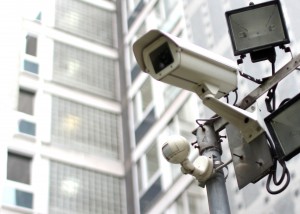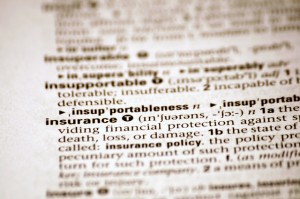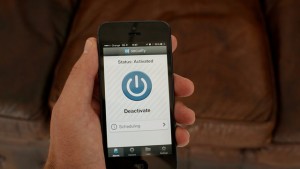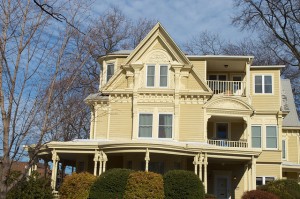 When it comes to home security systems, you may have heard the phrase “interactive services.” You may have even heard the terms “home automation,” “connected home,” and “smart house.” What do they all mean, and how are they related to home security? They’re meanings are essentially the same, and in relation to security, they describe the ability to remotely interact with, and access, devices in your home by means of a mobile device or computer. If you have a comprehensive home security system, you likely have cameras, motion detectors, door and window sensors, fire and carbon monoxide detectors that communicate with a central control panel located in your home. Being able to connect and interact with these security features from a remote location is beneficial for a multitude of reasons. Cameras and motion detectors aren’t the only devices you can access from afar. Imagine being able to adjust the temperature in your home before you get there, or turning lights on and off, even opening or closing your garage door. In partnering with Alarm.com, Perfect Connections, Inc. has been providing these interactive service options to homes in Central and Northern New Jersey for years. Our team of licensed professionals can help you customize a security system that will connect you to the inner, and sometimes outer, workings of your home.
When it comes to home security systems, you may have heard the phrase “interactive services.” You may have even heard the terms “home automation,” “connected home,” and “smart house.” What do they all mean, and how are they related to home security? They’re meanings are essentially the same, and in relation to security, they describe the ability to remotely interact with, and access, devices in your home by means of a mobile device or computer. If you have a comprehensive home security system, you likely have cameras, motion detectors, door and window sensors, fire and carbon monoxide detectors that communicate with a central control panel located in your home. Being able to connect and interact with these security features from a remote location is beneficial for a multitude of reasons. Cameras and motion detectors aren’t the only devices you can access from afar. Imagine being able to adjust the temperature in your home before you get there, or turning lights on and off, even opening or closing your garage door. In partnering with Alarm.com, Perfect Connections, Inc. has been providing these interactive service options to homes in Central and Northern New Jersey for years. Our team of licensed professionals can help you customize a security system that will connect you to the inner, and sometimes outer, workings of your home.
How Does It Work?
First, you have a home security system installed with all of the sensors, cameras, and detectors that you and your security systems specialist customized. In order to access the full functions of your remote services you must have an interactive service plan with a company like Alarm.com. After that, you simply download their app on your tablet, smartphone, computer, or other mobile device, and you’ll have total home control at the tips of your fingers.
There are basically two ways a home can become “connected.” Wireless or hardwired. The trends of our progressive society tend to make everything more technological, therefore, many security systems are being installed wirelessly with cellular backup. This eliminates the need to cut holes in walls and have dangling or exposed wires. Wireless technology is particularly favorable if you own an older home where breaking open walls isn’t an option. The same technology that works for our cellphones and Bluetooth devices can now be implemented in the home. More and more homeowners are leaving landlines in the past and switching to cellular devices anyway, making the connected home a smoother integration. A hardwired system does required cabling, however, it has been in use for a longer period of time, and proven to work. Some home automation systems use a combination of both wireless and hardwired technologies. To determine what type of system is right for your home, hiring a professional to perform a full assessment is your best bet.
What Are The Capabilities?
 Depending on how many, and what kind of devices are connected to your system, your operating choices are seemingly endless. By using the mobile app, you can gain access to the security cameras inside and outside your home to see what is happening throughout the day. Certain motion detectors can be set up to send you snap shots of specific areas and activity in your home. Your system can be set up to notify you when you kids arrive home from school, if you’re not able to be there. The ability to adjust your thermostat and turn lights on and off is a common feature. Check-in on loved ones and/or pets throughout the day. Having interactive services as part of your comprehensive security system will alert local authorities to any disturbances at your home while simultaneously alerting you on your mobile device.
Depending on how many, and what kind of devices are connected to your system, your operating choices are seemingly endless. By using the mobile app, you can gain access to the security cameras inside and outside your home to see what is happening throughout the day. Certain motion detectors can be set up to send you snap shots of specific areas and activity in your home. Your system can be set up to notify you when you kids arrive home from school, if you’re not able to be there. The ability to adjust your thermostat and turn lights on and off is a common feature. Check-in on loved ones and/or pets throughout the day. Having interactive services as part of your comprehensive security system will alert local authorities to any disturbances at your home while simultaneously alerting you on your mobile device.
Why Is It Beneficial?
Controlling and accessing various devices in your or a loved one’s home is advantageous for a multitude of reasons. One of the most obvious benefits is that it provides peace of mind on a constant basis, knowing you’ll instantly be notified of what matters most to you. Being able to remotely adjust your thermostat and turn lights on and off will lower your utilities bill and inadvertently help you waste less energy. Remote access is extremely convenient, you have control in the palm of your hand at all times, as long as your device is charged. Having remote capabilities will save you time by not having to rush home last minute to adjust appliances or unlock doors for pet sitters, family members, or scheduled visitors. With services provided by Alarm.com alerts and access don’t have to stop even when your system is unarmed. The functions of your home become more efficient.
Utilizing a connected home system is a great way to help your loved ones maintain their independence, but also ensure their safety. Specific features allow you to make sure a family member is moving throughout the day, not leaving potentially dangerous appliances on, and you can activate or deactivate their alarm system for them if they forget. Maybe a family member uses an emergency response pendant (like Life Alert) which requires them to take action. But what if they can’t? Services provided by Alarm.com simplify their life and yours by not requiring personal action in case of an emergency. It’s a non-invasive approach to protect your family.
Whether you’re considering the Connected Home for the first time or it has been on your to do list for a while, don’t hesitate, contact the security professionals at Perfect Connections, Inc. for an in home assessment. Our team knows the safety of your home is paramount in the protection of your family. We have been providing service to Northern and Central New Jersey for decades, so you can be confident in our security knowledge and expertise.
If you live in Central or Northern New Jersey and would like information on any of the topics discussed above, please call 800-369-3962 or simply CLICK HERE.


 Just how much can you save by installing a security system? The answer to this question varies, it all depends on your insurance provider and the state you reside in. Although each company has a different policy, the average savings can be up to 20% (
Just how much can you save by installing a security system? The answer to this question varies, it all depends on your insurance provider and the state you reside in. Although each company has a different policy, the average savings can be up to 20% ( No business is immune to risk or unpredictable circumstances. In an emergency, often times, there’s an influx of panic for those involved. Our dedicated and hardworking emergency responders-firefighters, EMTs, ambulance, and police-are the ones who keep a strong front and are prepared to help us through these tough situations. As a business owner wouldn’t it be great if there was a way to lessen the constant fear of unknown threats to your organization? Fortunately, there is something you can do for your business, your employees, yourself, and the responders. Be prepared and have a plan.
No business is immune to risk or unpredictable circumstances. In an emergency, often times, there’s an influx of panic for those involved. Our dedicated and hardworking emergency responders-firefighters, EMTs, ambulance, and police-are the ones who keep a strong front and are prepared to help us through these tough situations. As a business owner wouldn’t it be great if there was a way to lessen the constant fear of unknown threats to your organization? Fortunately, there is something you can do for your business, your employees, yourself, and the responders. Be prepared and have a plan.
 Fire is an unpredictable force that can wreak havoc on any business. It is imperative as a business owner, facility manager, or building owner that the proper precautions are in place to help prevent catastrophe. The
Fire is an unpredictable force that can wreak havoc on any business. It is imperative as a business owner, facility manager, or building owner that the proper precautions are in place to help prevent catastrophe. The  Home renovation is an exciting and fulfilling prospect for many homeowners. Whether you’re adding on or adjusting an existing space, it’s imperative to make sure your home is protected during the process. While renovating your home is rewarding for you and your family, you don’t want it to be a “rewarding” process for would-be thieves and criminals. Our experts here at
Home renovation is an exciting and fulfilling prospect for many homeowners. Whether you’re adding on or adjusting an existing space, it’s imperative to make sure your home is protected during the process. While renovating your home is rewarding for you and your family, you don’t want it to be a “rewarding” process for would-be thieves and criminals. Our experts here at  contributes, gets along, and the sun is always shining, right? Unfortunately, just as the weather is unpredictable, so is human nature. Criminals don’t care if your neighborhood is considered safe, if they see vulnerability, they see opportunity. Don’t fool yourself into thinking your home is safe because of your surroundings. Statistically,
contributes, gets along, and the sun is always shining, right? Unfortunately, just as the weather is unpredictable, so is human nature. Criminals don’t care if your neighborhood is considered safe, if they see vulnerability, they see opportunity. Don’t fool yourself into thinking your home is safe because of your surroundings. Statistically, 

